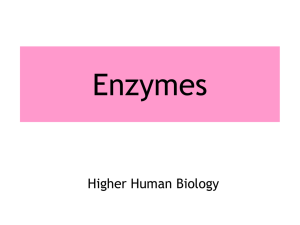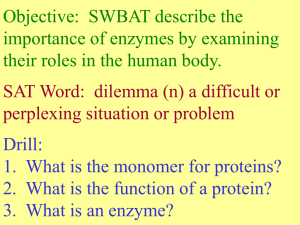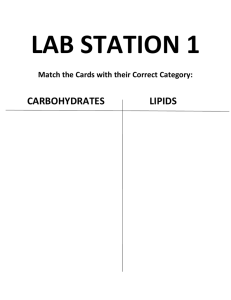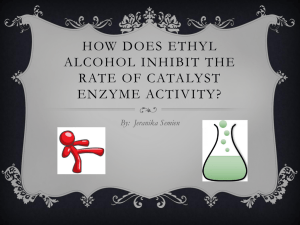Enzymes and Denaturing
advertisement
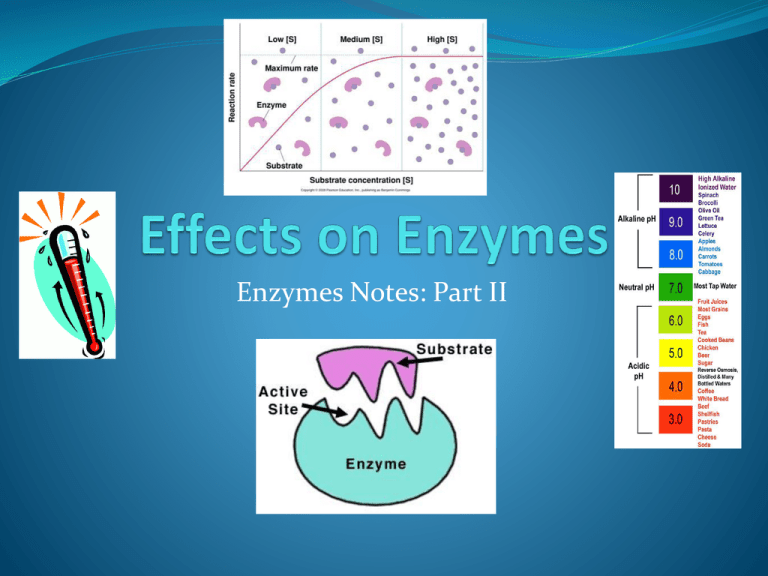
Enzymes Notes: Part II Enzymes and their Environment All enzymes have an ideal environment that they function in Think of them as organisms adapted to their specific environment and niche Who would survive better in Antarctica, a polar bear or a camel? What enzyme would be more effective in an acidic environment, a protease in your stomach or amylase in your mouth? What effects enzymes? Temperature pH Enzyme/Substrate Concentration Denaturing When an enzyme loses its structure and becomes non- functional due to drastic changes in temperature or pH Temperature Every enzyme has an ideal temperature range that it functions in Outside of this range, the enzyme may become denatured Enzymes in the Human Body pH What is pH? Measure of acidic or basic a solution is pH and Enzymes Every enzyme has an ideal pH range it is used to working in based on its environment Outside of this range, it can become denatured Enzymes in the Human Body pH Scale Let’s learn more about the pH Scale! http://www.brainpop.com/science/matterandchemistry/phscale/ Concentration How much stuff (solute) is dissolved in a certain amount of solution (solvent) How much enzyme and substrate there are in a solution can effect how productive the enzyme is Concentration If enzyme concentration is kept constant, and substrate levels are increased, then, the reaction rate will increase until it reaches its maximum level Enzyme Denaturation Review! http://www.youtube.com/watch?v=3IL_Df5ouUc Enzyme Concentration Review! http://www.kscience.co.uk/animations/mod el.swf Do Now Identify the BEST pH for the following three enzymes and identify what pH ranges they would become denatured. Example Questions! Which of the following most accurately represents the effects of temperature on enzyme reactions in humans? Example Questions! Which of the following most accurately represents the effects of temperature on enzyme reactions in a thermophilic bacteria? Example Questions! The reaction catalyzed by the bacterial enzyme ß-galactosidase forms a dark-colored end-product when the cells are grown on a particular agar medium. As more product is formed, the cells become darker. Students performed an experiment to determine the optimum pH for activity of this enzyme. Their results are shown in the illustration of bacterial colonies below. Based on these data, the students should conclude that ß-galactosidase functions best at which pH? A. 5 B. 7 C. 9 D. 11 Example Questions! All of the following statements are true about enzymes EXCEPT: A. Enzymes are specific to one substrate and reaction B. Once enzymes are used once, they can be used over and over again C. Enzymes raise the activation energy of a reaction D. Enzymes speed up the rate of reactions E. Temperature and pH changes can cause enzymes to lose their function
